Infectious Diseases Fellowship
INTRODUCTION
The Adult ID Subspecialty Fellowship at the Schulich School of Medicine & Dentistry at Western University is a 2-year program fully accredited by the Royal College of Physicians and Surgeons of Canada. This program offers residents with top notch experiential and didactic training in clinical infectious diseases and related disciplines in an academic institution with an extensively large and diverse clinical, research, and educational portfolio.
Eligibility requirements include 3 years of Internal Medicine residency in an accredited Canadian training program (for deomestic or U.S. applicants entering the CaRMS match) or an approved International training program (for Internationall-Sponsored Residents (ISRs) as set out by the Postgraduate Medical Education Office. If interested applicants require further information, they are invited to contact the program directly.
FELLOWSHIP STRUCTURE
The fellowship program is based on the new Royal College Competence By Design (CBD) educational framework. Residents enrolled in the program will spend the vast majority of their time at London's three main teaching hospitals for their clinical rotations. Residents will complete a total of 7 blocks on the Adult ID Inpatient Consultation Service, 3 Blocks of Medical Microbiology, 3 Blocks of Infection Prevention and Control/Antimicrobial Stewardship, 2 Blocks of Pediatric Infectious Diseases, 1 Block of Transplant ID, 1 Block of Public Health, 1 Block of Ambulatory ID (Clinics), and 6 blocks of electives. Up to 3 elective rotations may be taken out-of-town. Residents may choose to do elective rotations in Addictions Medicine, Educational Scholarship, Quality Improvement, Research, Tropical Medicine, Viral Hepatitis, Wound Care, or in any of the core clinical rotations (e.g., Medical Microbiology).
Resident Wellness is a major focus of the program. There are three scheduled resident wellness retreats per year. The first week of fellowship includes a thorough orientation to the Program during a Program Director's Welcome Breakfast, as is capped with a wellness picnic in lieu of academic half day. For trainees in their first-year of fellowship, a comprehensive twice-weekly seminar series is delivered in person or virtually during the months of July and August, and covers the basics of performing an infectious diseases consultation, documentation of clinical encounters, infection prevention and control policies, nuts and bolts of antimicrobial therapy, and management of infectious diseases emergences.
Given the large number of residents and clinical fellows in the program (currently 5 domestic and 3 international), residents enrolled in our program have an opportunity to build strong professional ties with their peers. Call duties are home-based and reasonably light (maximum of one weekend per block, and 1 in 6 to 1 in 8 during weekdays).
All Residents enrolled in the program receive mentorship and career planning from the Program Director on a quarterly basis throughout the 2-year program. Every graduate of our program has been successful in pursuing additional fellowship training (Medical Microbiology, Transplant ID) or graduate studies (Health Sciences Research, Health Professions Education).
Our Program also offers fellowship opportunities in Transplant Infectious Diseases, Antimicrobial Stewardship, and Infection Prevention & Control for residents who have completed two years of Adult ID fellowship training.
OVERARCHING OBJECTIVES
Upon successful completion of the 2-year training program, the resident is expected to be a competent subspecialist in Infectious Diseases, capable of assuming a consultant’s role in the subspecialty. The graduating resident will have acquired the requisite theoretical knowledge of the subspecialty, including its foundations in the basic medical sciences and research. The resident will have also acquired expertise in critical analysis of the scientific literature and its application to clinical practice while educating colleagues, students, other health care professionals and patients.
ACADEMIC AND CLINICAL COLLABORATIONS
There is a very strong level of collaboration between the Adult Division of Infectious Diseases, Microbiology Laboratory, Pediatric Division of Infectious Diseases, Middlesex-London Health Unit (MLHU), and several Departments at the Schulich School of Medicine & Dentistry (Medicine, Pathology & Laboratory Medicine, Epidemiology & Biostatistics, and Microbiology & Immunology) in clinical service delivery, research, education, and/or administration.
HEALTHCARE FACILITIES AND PROGRAMS
Adult Healthcare Institutions
Our program is supported by excellent tertiary-care academic health care organizations, namely London Health Sciences Centre (LHSC) and St. Joseph’s Health Care London (SJHC) where most clinical training will take place. LHSC is a multi-site healthcare facility with two campuses, including University Hospital and Victoria Hospital, and offers the broadest range of direct patient care services of any hospital network in Ontario.
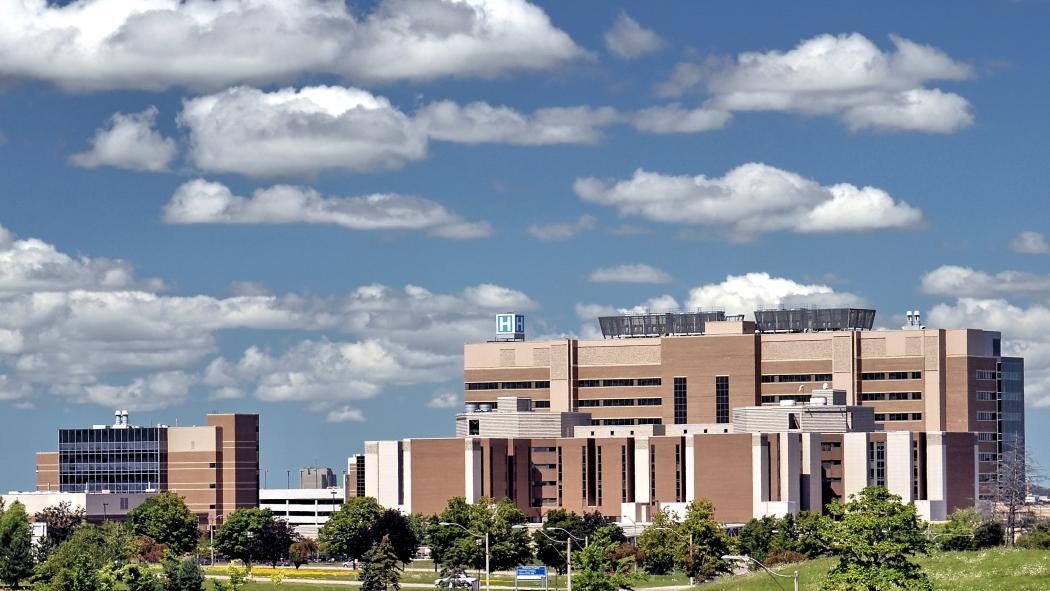
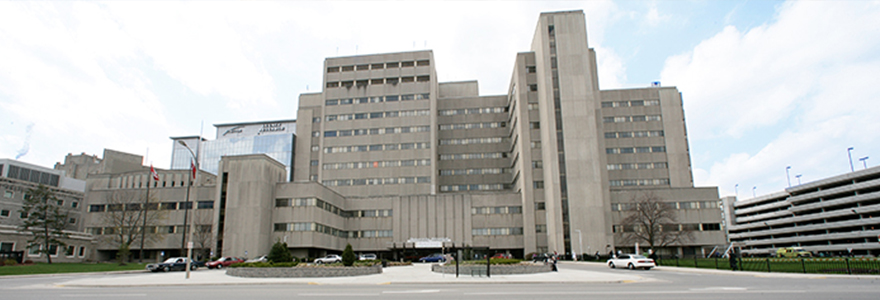
SJHC is a multi-site facility with two campuses, including St. Joseph’s Hospital and Parkwood Institute, that plays a major role in ambulatory care. At the St. Joseph’s Hospital site, the Infectious Diseases Service provides specialized ambulatory care in HIV management, viral hepatitis, general infectious diseases, and cellulitis/skin and soft-tissue infections.
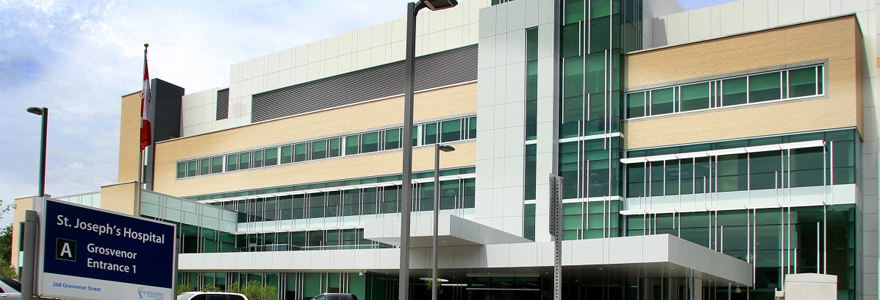
London's academic hospitals have a catchment area of approximately 2 million persons, the largest of any hospital network in the province. We boast a very large Solid Organ Transplant Program (Kidney, Liver, and Heart), a rapidly growing Hematopoietic Stem Cell Program, a World-renowned hip and knee arthroplasty program, a Trauma unit, a Burn unit, a Critical Care Program, and many other programs that are dependent on the services of the Division of Infectious Diseases.
Pediatric Healthcare Institutions
Pediatric Infectious Diseases training takes place at the Children’s Hospital of Western Ontario (CHWO), located at Victoria Hospital. Our program has a formal affiliation agreement with The Hospital for Sick Children in Toronto, where residents may choose to do their mandatory blocks of Pediatric Infectious Diseases training, if they so desire.
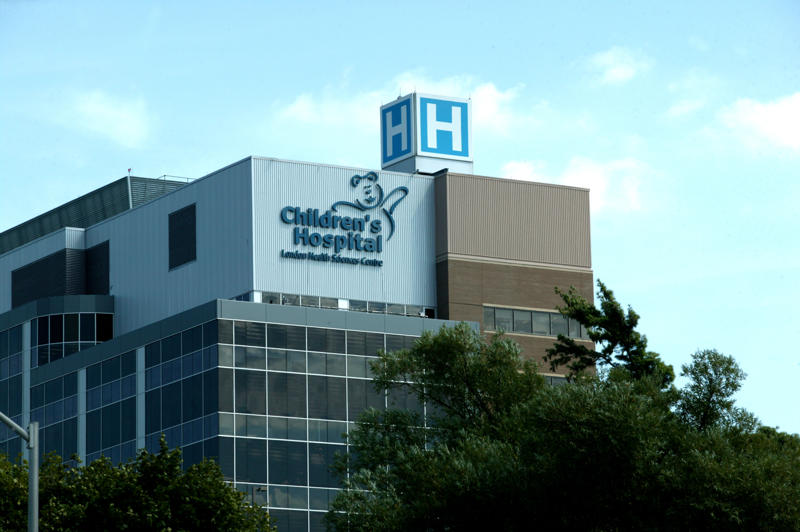
PaLM Microbiology Laboratory
A state-of-the-art Microbiology Laboratory, one of several laboratories operated by the Department of Pathology and Laboratory Medicine (PaLM), is located at Victoria Hospital and serves as the main training site for Medical Microbiology rotations. The laboratory offers a comprehensive array of diagnostic services for the region’s academic hospitals and several healthcare facilities in the surrounding region. Diagnostic services include general bacteriology, virology, mycology, serology, parasitology, molecular diagnostics, and epidemiology. The laboratory is supervised by 6 energetic faculty members. The laboratory is based in a modern facility and is equipped with state-of-the-art diagnostic technologies. A dedicated molecular microbiology suite was constructed in 2020. The laboratory has recently undergone a major transformation involving the installation of a world-first total laboratory automation system for culture-based bacteriology in 2023. This new approach to diagnostics has paved the way for improved clinical service delivery and enhanced learning opportunities through the use of digital imaging tools and information technology.
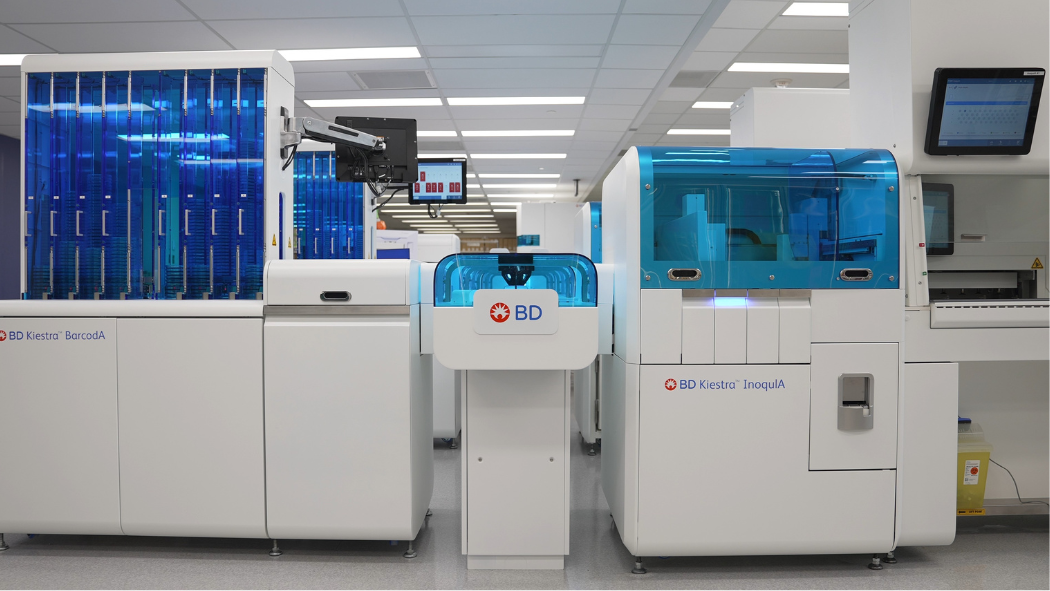
Public Health Ontario Laboratory
Training in mycobacteriology and parasitology takes place at the Public Health Ontario Laboratory – London Headquarters. This new facility was built in 2020 and features a modern laboratory with over 20,000 square feet of space, including Containment Level (CL) 2 and 3 work areas. This laboratory is located only a few blocks away from Victoria Hospital.
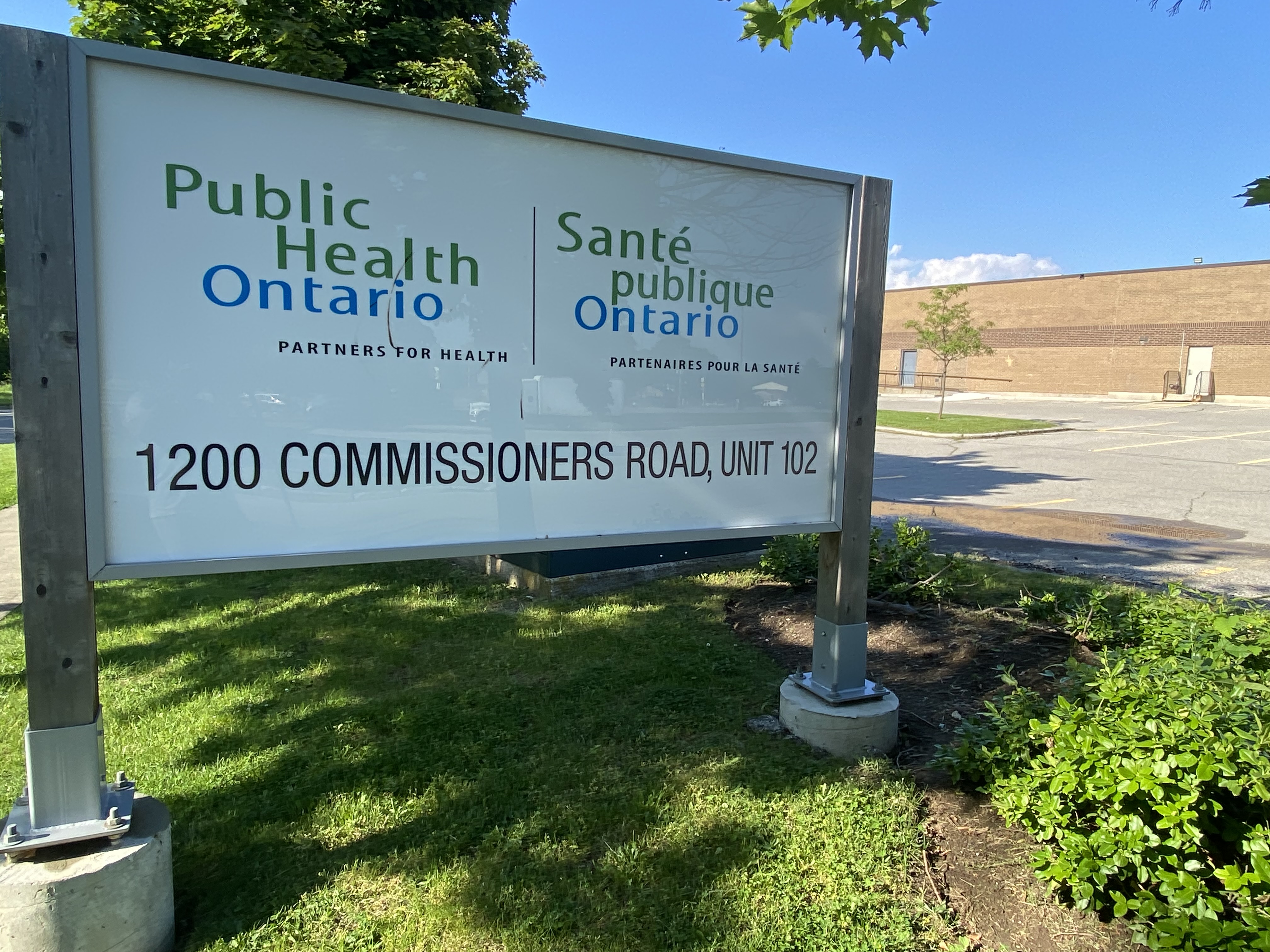
Public Health Unit
The Middlesex-London Health Unit (MLHU) is one of several public health units in Ontario and is responsible for delivering programs and services as part of the Health Protection and Promotion Act (HPPA) to the people who live in London and Middlesex County. Service delivery is provided according to Ontario Public Health Standards. The MLHU is a key site for mandatory training in Public Health and Preventive Medicine for residents in our program. Additionally, several outpatient clinics run out of the MLHU, including Sexually Transmitted Infection (STI) clinics and Tuberculosis (TB) clinics.
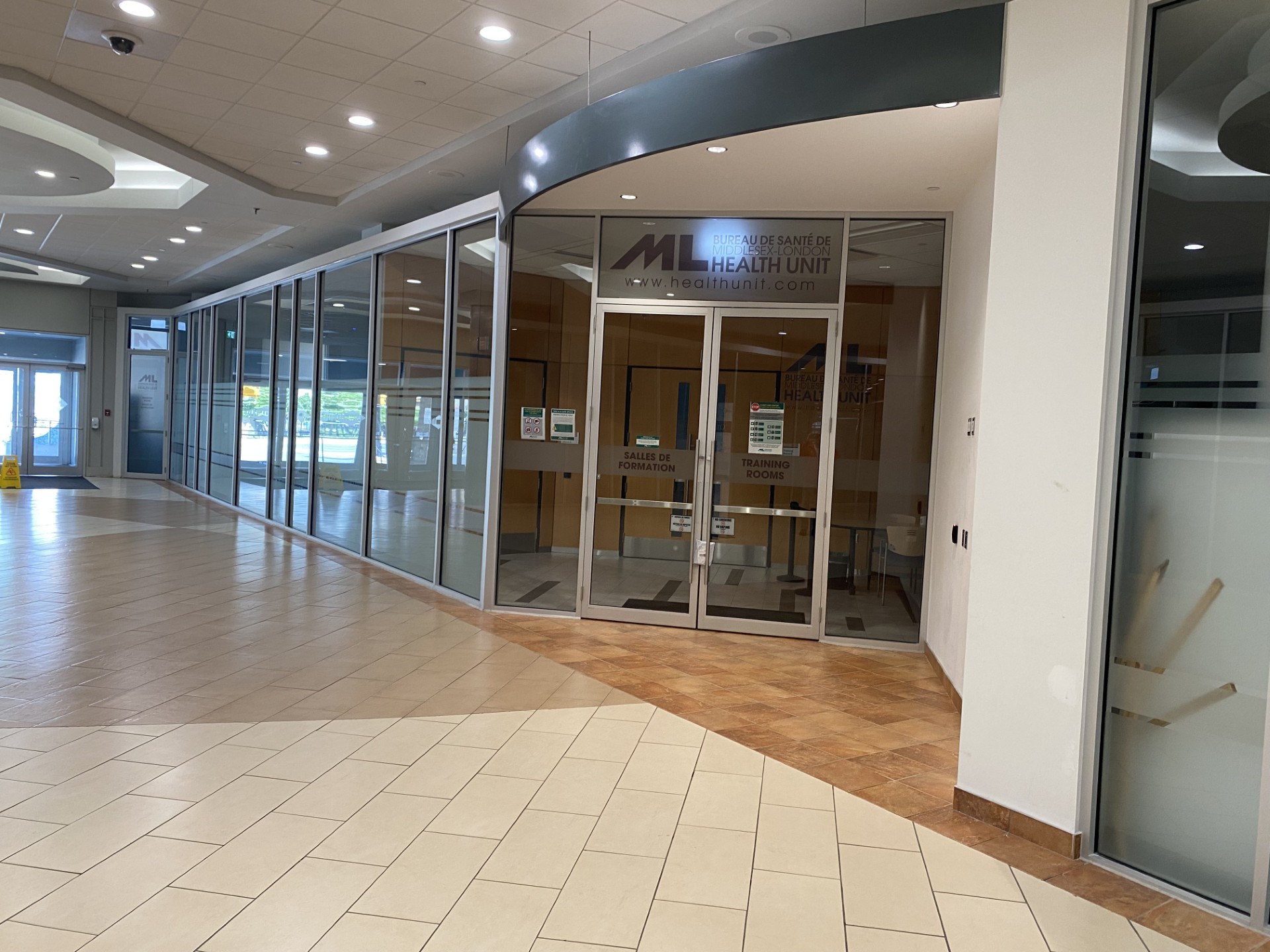
Infection Prevention and Control Program
The Infection Prevention and Control Programs at LHSC and SJHC offer excellent training opportunities in outbreak investigation and control. These programs play a major role in patient safety at their respective hospitals. They implement evidence-based practices and procedures to reduce or prevent the transmission of microorganisms to and from health care providers, other hospital employees, patients, and visitors. These two independently operating hospital programs are aligned in many of their administrative and clinical activities. These programs also work in close collaboration with the Schulich School of Medicine & Dentistry, MLHU, and Public Health Ontario.
Antimicrobial Stewardship Program
The Antimicrobial Stewardship Program (ASP) at LHSC plays a major role in the hospital’s Quality Improvement and Patient Safety activities. This program is headquartered at Victoria Hospital and is staffed by one Infectious Diseases Physician and four Antimicrobial Stewardship Pharmacists who also provide support for the inpatient Infectious Diseases teams. Core members of the ASP are involved in knowledge dissemination and policy development to promote the judicious use of antibiotics, with the goal of improving patient health. St. Joseph's Healthcare London (SJHC) oprates an Antimicrobial Stewardship Program under the direction of one Infectious Diseases Physician and one Antimicrobial Stewardship Pharmacist. The LHSC and SJHC programs work together on a number of initiatives, including perioperative antimicrobial prophylaxis guidelines, policy development, and education. The Department of Pediatrics has recently launched a Pediatric Antimicrobial Stewardship Program under the supervision of one Pediatric Infectious Diseases Physician and one Antimicrobial Stewardship Pharmacist.
PROGRAM LEADERSHIP
Program Director: Dr. Sameer Elsayed
Assistant Program Director: Dr. Lise Bondy
Program Administrator: Allix Suzuki









